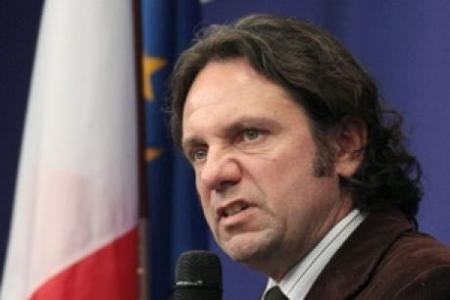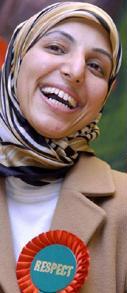France’s parliament is likely to call in a resolution for a ban on Muslim face veils in public but take longer to turn that policy into law, deputies said on Thursday.
A parliamentary commission studying the sensitive issue, which has been discussed alongside a wider public debate about French national identity launched by President Nicolas Sarkozy, is due to publish its recommendations next Tuesday.
Polls say most voters want a legal ban on full-length face veils, known here by the Afghan term burqa although the few worn in France are Middle Eastern niqabs showing the eyes. Critics say a law would stigmatize Muslims and be unenforceable.
Jean-Francois Cope, parliamentary floor leader for Sarkozy’s conservative UMP party, told France Inter radio said the plan was for “a resolution to explain and then a law to decide.” A parliamentary resolution would not be legally binding.
Andre Gerin, head of the commission, agreed that deputies needed more time to draft a law, but told the daily Le Figaro: “The ban on the full facial veil will be absolute.”
Police reports say fewer than 2,000 women in France wear full veils, but deputies such as Gerin – whose constituency in Lyon has many Muslim residents – insist this is a growing trend that Paris must legislate to stop in its tracks.
Gerin said France also had to deal with “the French Taliban who force women to be veiled. By ‘Taliban’ I mean the husband, big brother, family, even the neighborhood, because there is a kind of sharia (Islamic law) in some areas. The full veil is the visible part of this black tide of fundamentalism.”
Reuters, 21 January 2010
 A Swiss basketball player has failed in her bid to have a court overturn a headscarf ban when she plays in league games.
A Swiss basketball player has failed in her bid to have a court overturn a headscarf ban when she plays in league games.
 “Islam doesn’t demand that men cover their faces before they go out, but its more extreme advocates place special conditions on how women dress outside the home. It’s a typical example of patriarchal practice, based on the notion that women should be under the control of their male relatives at all times, and it’s incompatible with any notion of universal human rights….
“Islam doesn’t demand that men cover their faces before they go out, but its more extreme advocates place special conditions on how women dress outside the home. It’s a typical example of patriarchal practice, based on the notion that women should be under the control of their male relatives at all times, and it’s incompatible with any notion of universal human rights…. Women who wear the burka in France should be banned from using public transport or receiving state handouts, a government spokesman has said.
Women who wear the burka in France should be banned from using public transport or receiving state handouts, a government spokesman has said. Plans to ban Muslim women from covering their faces in public areas are oppressive, the leader of the Respect party said yesterday.
Plans to ban Muslim women from covering their faces in public areas are oppressive, the leader of the Respect party said yesterday.